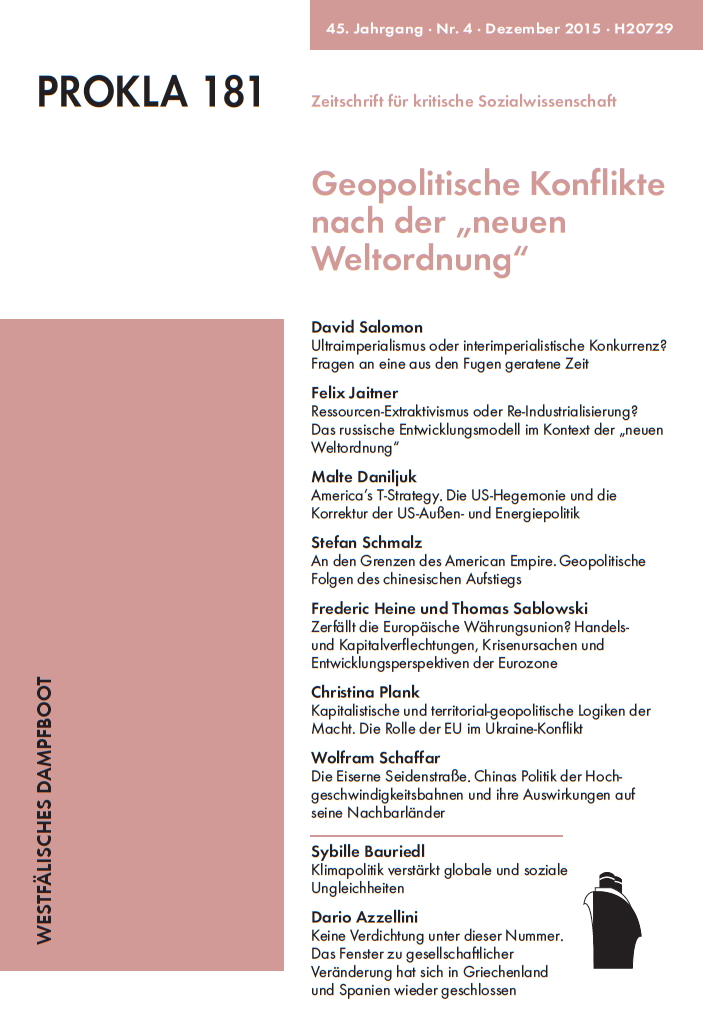Kapitalistische und territorial-geopolitische Logiken der Macht
Die Rolle der EU im Ukraine-Konflikt
DOI:
https://doi.org/10.32387/prokla.v45i181.202Schlagwörter:
EU, Geopolitik, Ukraine, Krise, WirtschaftspolitikAbstract
The non-signing of the association and free trade agreement with the EU by the former Ukrainian president Victor Janukovych triggered the on-going conflict in the Ukraine. By offering a deepening of the political and economic relations with the West, the EU did not consider Russia’s interests in the post-Soviet region. Drawing on Harvey, the article argues that within this process the territorial-geopolitical logic prevails over the capitalist logic of power. Economic interests of the European Union exist, but they are not sufficient to explain the conflict in Eastern Ukraine. Rather, the conflict can be understood as a non-intentional consequence of the EU’s politics concernging the Ukraine. In particular, three sectors – finance, energy and agriculture – are relevant for the EU in Ukraine. However, up to now the European capital factions are facing difficulties in asserting their interests in these sectors due to strong oligarchic structures in the country. Together with the territorial-geopolitical logic of power they have to be taken into account to explain the conflict. Ultimately, the armed conflict in the Eastern Ukraine endangers the EU’s economic ties with Russia. These are more important for the EU than its economic relations with Ukraine. As a result, the territorial-geopolitical logic unfolds as opposed to the capitalist logic in the conflict.





